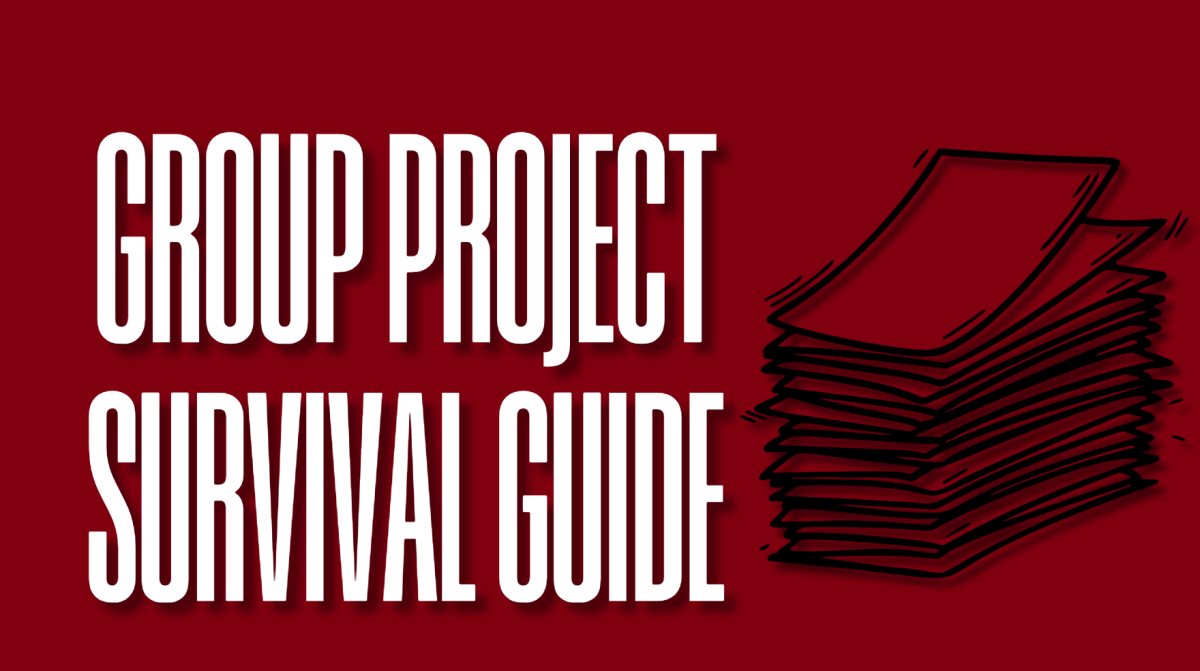Group projects are like social experiments disguised as homework. You never know what kind of team you’re getting until it’s too late. Will it be a dream team, or a disaster movie? There is always that one person who ghosts the group chat, the overachiever who color-codes everything and the rest of us just trying to make it to presentation day without losing it. With midterms in full swing, your teamwork skills are probably being tested, so here’s how to make it through the chaos (and maybe even enjoy it a little).
Let’s be honest, every group project has “that person.” You know exactly who I’m talking about. The one who disappears until the day before the presentation and suddenly texts, “Hey, what do I need to do again?” Or the one who takes control of everything like they’re running for office. I’ve seen both kinds, and honestly, they teach you patience.
Edie May, FCRH ’29, gave a perfect example of how unpredictable group projects can be. “The irony … is that today in my class, my sustainability teacher assigned us an article about why GenAI is bad for the environment,” she said. “Then, in class, while we were thinking of a ‘chain of effects’ that comes with using AI, my partner used ChatGPT.”
It’s the kind of situation that’s so ridiculous, all you can do is laugh.
When it comes to surviving a group project, communication is everything. The biggest mistake people make is assuming everyone is on the same page. Spoiler alert: they’re not! My group usually starts a shared Google Doc and a group chat right away. I also swear by using a shared calendar because it’s the only way to keep track of deadlines and who’s doing what. The trick is to keep the messages short and clear. Nobody’s reading a paragraph-long text about font choices. Also, if your group has that one person who never responds, try using humor to get their attention. Something like, “Hey bestie, not to be dramatic, but the entire grade depends on you.” It’s cringy, but surprisingly works.
Balancing work in group projects can be tough, especially if you’re all juggling different schedules. The key is being honest about what you can handle. If you know you’re terrible at designing slides but great at research, say that. Don’t volunteer to do something you’ll end up hating.
Calysta James Washington, FCRH ’29, shared her top three survival tips for making group projects go smoother.
“First, make sure you have everyone’s contact information,” she said “Second, divide up the work so everyone knows their part. Third, set earlier deadlines — like if something’s due at 11:59, tell everyone to have their part in by 8:00. That way whoever’s submitting has time to put it all together,” she said.
Honestly, that’s solid advice most of us could use.
If you want to get creative with assigning roles, try making it a mini game. One of my professors once had us draw our roles out of a hat, and it was actually fun. I ended up being “Team Leader,” which basically meant “Chief of Sending Reminder Texts.” Another time, my group and I matched roles with our zodiac signs. The Libras got presentation design, the Virgos handled the research and the Sagittarius in our group just made memes for the slides. It weirdly worked.
There are good things about working in groups, even if it doesn’t always feel like it. You learn how to collaborate, deal with different personalities and manage time better. Sometimes, you even end up making new friends. I once worked on a marketing project with two random classmates and now we grab coffee every week. Group projects also push you to see things from different perspectives. When you’re working alone, you only see your way. In a group, someone might point out an idea you never considered.
Of course, there are also the downfalls. There’s always a risk someone won’t do their part, and you’ll have to pick up the slack. Or the group can’t agree on anything, and meetings turn into debates that go nowhere. It can also be frustrating when one person tries to take credit for everything. I’ve learned the hard way that you can’t control other people’s effort, you can only control your own. So I try to focus on what I can contribute and let the rest go.
In the end, group projects are kind of like reality shows. There’s always drama, twists and at least one emotional breakdown, but somehow, it all comes together in the end. The key is keeping things organized, communicating clearly and not taking everything too seriously. Laughing through the chaos helps.
So the next time your professor says, “You’ll be working in groups,” take a deep breath and remember, you’ve got this! Whether your group is full of overachievers, procrastinators or complete strangers, it’s all part of the college experience. You might even end up with a funny story to tell, or at the very least, a new appreciation for solo projects.







































































































































































































